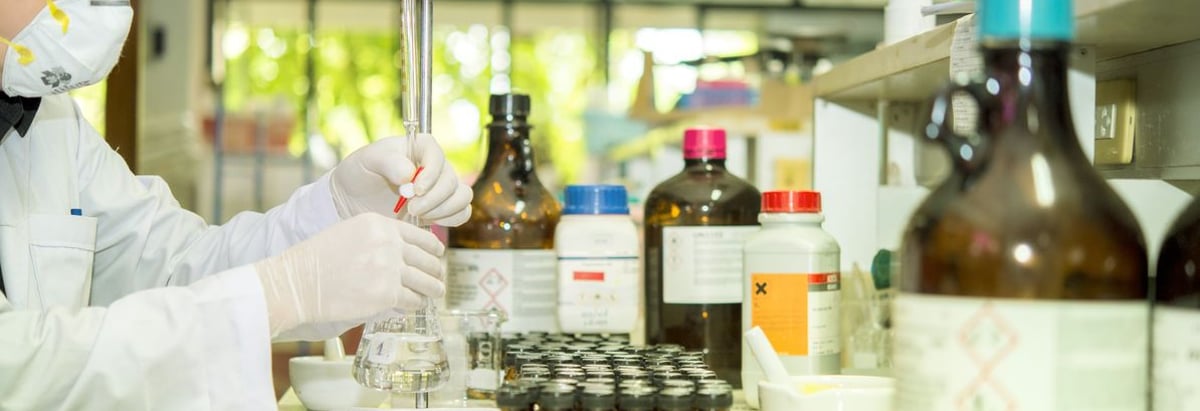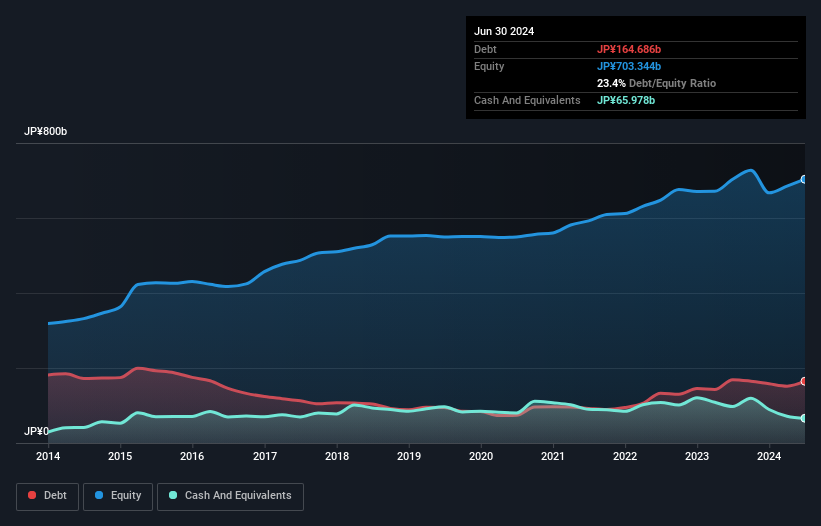Here's Why Mitsubishi Gas Chemical Company (TSE:4182) Can Manage Its Debt Responsibly

The external fund manager backed by Berkshire Hathaway's Charlie Munger, Li Lu, makes no bones about it when he says 'The biggest investment risk is not the volatility of prices, but whether you will suffer a permanent loss of capital.' So it might be obvious that you need to consider debt, when you think about how risky any given stock is, because too much debt can sink a company. We note that Mitsubishi Gas Chemical Company, Inc. (TSE:4182) does have debt on its balance sheet. But is this debt a concern to shareholders?
Why Does Debt Bring Risk?
Generally speaking, debt only becomes a real problem when a company can't easily pay it off, either by raising capital or with its own cash flow. In the worst case scenario, a company can go bankrupt if it cannot pay its creditors. However, a more usual (but still expensive) situation is where a company must dilute shareholders at a cheap share price simply to get debt under control. Having said that, the most common situation is where a company manages its debt reasonably well - and to its own advantage. The first step when considering a company's debt levels is to consider its cash and debt together.
See our latest analysis for Mitsubishi Gas Chemical Company
How Much Debt Does Mitsubishi Gas Chemical Company Carry?
The chart below, which you can click on for greater detail, shows that Mitsubishi Gas Chemical Company had JP¥164.7b in debt in June 2024; about the same as the year before. On the flip side, it has JP¥66.0b in cash leading to net debt of about JP¥98.7b.

How Healthy Is Mitsubishi Gas Chemical Company's Balance Sheet?
We can see from the most recent balance sheet that Mitsubishi Gas Chemical Company had liabilities of JP¥238.0b falling due within a year, and liabilities of JP¥152.0b due beyond that. Offsetting this, it had JP¥66.0b in cash and JP¥168.6b in receivables that were due within 12 months. So it has liabilities totalling JP¥155.4b more than its cash and near-term receivables, combined.
This deficit isn't so bad because Mitsubishi Gas Chemical Company is worth JP¥550.4b, and thus could probably raise enough capital to shore up its balance sheet, if the need arose. But it's clear that we should definitely closely examine whether it can manage its debt without dilution.
We use two main ratios to inform us about debt levels relative to earnings. The first is net debt divided by earnings before interest, tax, depreciation, and amortization (EBITDA), while the second is how many times its earnings before interest and tax (EBIT) covers its interest expense (or its interest cover, for short). Thus we consider debt relative to earnings both with and without depreciation and amortization expenses.
Mitsubishi Gas Chemical Company has a low debt to EBITDA ratio of only 1.0. But the really cool thing is that it actually managed to receive more interest than it paid, over the last year. So there's no doubt this company can take on debt while staying cool as a cucumber. On top of that, Mitsubishi Gas Chemical Company grew its EBIT by 56% over the last twelve months, and that growth will make it easier to handle its debt. The balance sheet is clearly the area to focus on when you are analysing debt. But it is future earnings, more than anything, that will determine Mitsubishi Gas Chemical Company's ability to maintain a healthy balance sheet going forward. So if you're focused on the future you can check out this free report showing analyst profit forecasts.
Finally, a company can only pay off debt with cold hard cash, not accounting profits. So it's worth checking how much of that EBIT is backed by free cash flow. Considering the last three years, Mitsubishi Gas Chemical Company actually recorded a cash outflow, overall. Debt is far more risky for companies with unreliable free cash flow, so shareholders should be hoping that the past expenditure will produce free cash flow in the future.
Our View
Mitsubishi Gas Chemical Company's interest cover was a real positive on this analysis, as was its EBIT growth rate. In contrast, our confidence was undermined by its apparent struggle to convert EBIT to free cash flow. Considering this range of data points, we think Mitsubishi Gas Chemical Company is in a good position to manage its debt levels. But a word of caution: we think debt levels are high enough to justify ongoing monitoring. The balance sheet is clearly the area to focus on when you are analysing debt. But ultimately, every company can contain risks that exist outside of the balance sheet. For example - Mitsubishi Gas Chemical Company has 2 warning signs we think you should be aware of.
If, after all that, you're more interested in a fast growing company with a rock-solid balance sheet, then check out our list of net cash growth stocks without delay.
New: Manage All Your Stock Portfolios in One Place
We've created the ultimate portfolio companion for stock investors, and it's free.
• Connect an unlimited number of Portfolios and see your total in one currency
• Be alerted to new Warning Signs or Risks via email or mobile
• Track the Fair Value of your stocks
Have feedback on this article? Concerned about the content? Get in touch with us directly. Alternatively, email editorial-team (at) simplywallst.com.
This article by Simply Wall St is general in nature. We provide commentary based on historical data and analyst forecasts only using an unbiased methodology and our articles are not intended to be financial advice. It does not constitute a recommendation to buy or sell any stock, and does not take account of your objectives, or your financial situation. We aim to bring you long-term focused analysis driven by fundamental data. Note that our analysis may not factor in the latest price-sensitive company announcements or qualitative material. Simply Wall St has no position in any stocks mentioned.
About TSE:4182
Mitsubishi Gas Chemical Company
Manufactures and sells basic and fine chemicals, and functional materials in Japan.
Excellent balance sheet established dividend payer.
Similar Companies
Market Insights
Community Narratives



